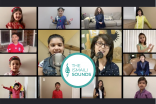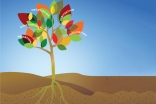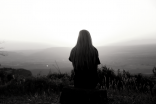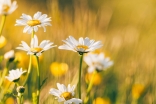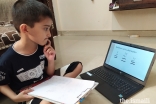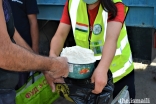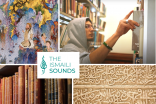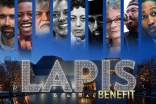Content Tagged with app
Talking Hands is an initiative by the Aga Khan Education Board and Aga Khan Social Welfare Board in the UK that introduces viewers to British Sign Language (BSL). The eight-episode series will air weekly on The Ismaili TV, with different topics covered in each lesson. Viewers will build up their sign vocabulary and be able to have basic everyday conversations in BSL.
The Ismaili is pleased to present Ya Ali Madad, performed by the Dhun Kids. This light-hearted song features young members of the Jamat greeting each other across the world, and illustrates our shared sense of community, regardless of where we come from.
The vital role of women throughout history has ensured that communities and nations have been able to progress, safeguarding the stability and long-term development of society as a whole. Rural women play a key role in food production worldwide and form a large proportion of the global agricultural workforce.
The Ismaili Imamat has acquired the Palacete Leitão located on Rua Marquês da Fronteira in Lisbon. The site is adjacent to the existing Palacete Henrique Mendonça, which on 11 July 2018, was designated by Mawlana Hazar Imam as the Diwan of the Ismaili Imamat.
Every year, the third Thursday in October is designated as Conflict Resolution Day, a global event intended to promote the concept of peaceful conflict resolution. Mediation Week is also celebrated during the month of October. This month gives us an opportunity to reflect on how we can each play a part in creating a more peaceful, generous, and hopeful world, especially during these challenging and stressful times. The theme for Mediation Week 2020 is “Access to Justice – The Role of Mediation.”
In February of this year, before the global pandemic emerged, an audience of 289 gathered at Westwinds Jamatkhana in Calgary, Alberta to learn about mental health and suicide prevention in youth through a dramatic performance entitled Screaming in Silence. National and local institutional leadership and family units consisting of multiple generations were in attendance.
During the pandemic, mental health has come to the forefront of many discussions, not only because of the effects of the virus on the body, but because of additional factors such as changes in daily life, job stress, stay at home orders, and reductions in social interactions within and outside the Jamat. A silver lining of the virus is the growing awareness and more frequent conversations around the topic of mental health.
The Covid-19 outbreak has not only drastically affected healthcare systems, major economies, social interactions, education, and almost every aspect of normal human life, but has also brought about unexpected, unprecedented, and rather sudden changes in our lives, which most of us were probably not ready for. On World Mental Health Day, 10 October, we find out how to deal with these circumstances and strive towards healthy minds and healthy lives.
The Covid-19 crisis has only added to our pre-existing stresses and worries. With new lifestyle changes, unusual working environments, and restrictions on social interactions, the pandemic has caught us off guard and unprepared. Although many of us are adjusting to a new normal, it is quite natural to feel overwhelmed and experience burnout. What can we do to help? Here are some tips to try out.
The most prestigious global environment prize in history is being launched today by Prince William with the Aga Khan Development Network as a Founding Partner. The Earthshot Prize aims to encourage large-scale change over the next 10 years — a critical decade for the Earth.
Responding to crises often requires us to think quickly; providing agile and adaptable solutions that can evolve with a changing context. In India, when the pandemic forced the closure of schools and Religious Education Centres, AKEB and ITREB in India took their learning programmes online for the first time ever.
The Ismaili is pleased to present Badle gi, performed by Fitoor the Band. The song’s lyrics represent a monologue influenced by the current pandemic. It touches on how human actions — often driven by greed and self-interest — have negatively impacted the natural environment and our own wellbeing, and expresses hope and optimism that things will now change for the better.
This year’s theme for World Habitat Day, Housing for All: A Better Urban Future, is an opportunity to reflect on the state of housing in our towns, cities, and communities, exploring how we can build stronger, more resilient settlements.
In celebration of World Teachers’ Day, The Ismaili presents a new short film featuring Bait-ul Ilm teachers and students in the UK jurisdiction Jamat, discussing the value of Religious Education and the recent adaptation to online classes.
Since the announcement of lockdowns earlier this year, Bait-ul Ilm centres quickly transitioned to an online learning model. This has significantly impacted the routines of students and teachers as they experiment with new ways of working and communicating. To mark World Teachers’ Day, 5 October, we spoke to IIS-trained secondary Religious Education teachers around the world to find out how they have adapted.
The Aga Khan Agency for Habitat (AKAH) and Focus Humanitarian Assistance (FOCUS) have been working to ensure that Pakistan and Tajikistan’s most vulnerable communities, volunteers, and patients have access to information, food, and essential supplies needed at this crucial time.
Life is dependent on a healthy environment, not least for people in the developing world, and the wildlife whose habitats are under threat. For a long time, nature has needed a voice, and thanks to a group of young filmmakers trained and supported by the Aga Khan University, that voice is beginning to be heard.
Across the world, education has been one of the most severely disrupted areas in the wake of the ongoing coronavirus pandemic. Through the introduction of various online initiatives, the Aga Khan Economic Planning Board (AKEPB) in India has invested in upskilling for teachers, to help them navigate the new world of online education.
The Ismaili is pleased to present Calmate, performed by Hip-Hop artist Fidah, who in this song explores the balance between faith and world, and encourages open conversation on the existential questions of life.
The Aga Khan Museum’s annual fundraising gala will take place online this year, aiming to extend friendship across divides and reach a diverse, global audience. Showcasing performances and on-screen conversations with a wide array of luminaries from the worlds of art, film, literature, music and science, the event will also include a special address from Prince Amyn.



